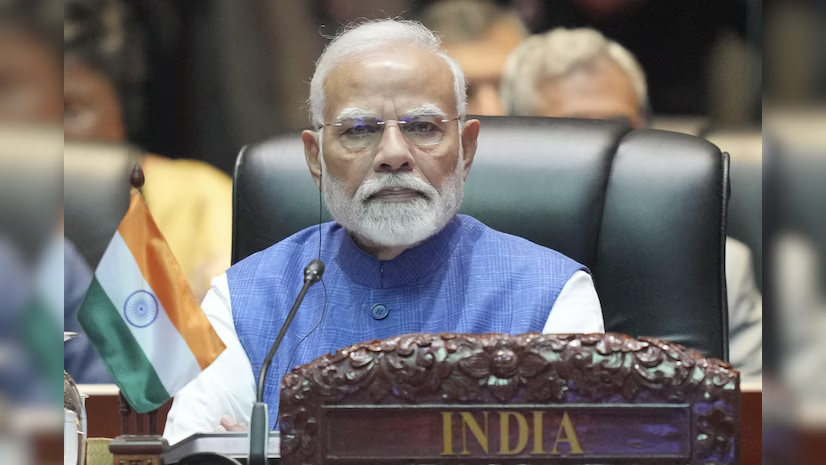In a recent statement, Indian Prime Minister Narendra Modi emphasized the importance India places on BRICS as a vital platform for dialogue and collaboration. As he embarked on a two-day visit to Kazan, Russia, to attend the 16th BRICS Summit, PM Modi underscored the significance of the grouping in addressing key global challenges, reinforcing the idea that BRICS is increasingly crucial in shaping the global developmental agenda.
At the heart of Modi’s remarks was the expansion of BRICS, which saw new members joining the group for the first time in over a decade during last year’s summit in Johannesburg. The inclusion of countries like Egypt, Ethiopia, Iran, and the United Arab Emirates has been viewed as a significant step towards making BRICS more inclusive, further diversifying its membership and enhancing its role in global governance.
“The expansion of BRICS with the addition of new members last year has added to its inclusivity and agenda for the global good,” PM Modi noted, reflecting India’s view that a larger BRICS can serve as a more effective voice for the Global South.
This year’s summit, hosted by Russia, takes place amid ongoing global tensions, particularly the conflict in Ukraine and the escalating situation in West Asia. In this context, BRICS has emerged as a platform where non-Western powers can assert their influence, advocate for multilateralism, and discuss pressing global issues without Western-centric approaches.
Modi reiterated India’s commitment to working closely with its BRICS partners on a broad range of global issues, from economic cooperation and climate change to building resilient supply chains. He emphasized that BRICS provides an important venue for discussing critical aspects of the global developmental agenda, including reforms in multilateral institutions.

“India values the close cooperation within BRICS, which has emerged as an important platform for dialogue and discussion on issues concerning the global developmental agenda, reformed multilateralism, climate change, economic cooperation, building resilient supply chains, and promoting cultural and people-to-people connections,” he said in his departure statement.
Beyond multilateral discussions, PM Modi’s visit also holds particular significance for India’s bilateral relations with Russia. During his trip, Modi is expected to hold several high-level meetings on the sidelines of the summit, including with Russian President Vladimir Putin and Chinese President Xi Jinping.
READ ALSO: US Announces New Rules to Safeguard Americans’ Data from Russia and China
This visit to Kazan builds on the foundation laid earlier in the year when Modi traveled to Moscow in July 2024 for a summit with President Putin. The two leaders discussed a range of bilateral and global issues, reinforcing the longstanding “Special and Privileged Strategic Partnership” between India and Russia.
“My visit to Kazan will further reinforce the Special and Privileged Strategic Partnership between India and Russia,” Modi said, highlighting the importance of the bilateral relationship amid evolving geopolitical dynamics.
The roots of BRICS stretch back to 2006, when the leaders of Russia, India, and China met in St. Petersburg to discuss greater cooperation. Four years later, in 2010, South Africa was added to the grouping, giving rise to the acronym BRICS (Brazil, Russia, India, China, and South Africa). Since then, BRICS has grown in influence, representing emerging economies with significant global clout.
The addition of new members in 2023 marks the first such expansion since South Africa’s inclusion and reflects the group’s evolving nature. As the global order becomes increasingly multipolar, BRICS provides an important alternative to traditional Western-led forums like the G7 and G20.
At the Kazan summit, Modi and other BRICS leaders will engage in extensive discussions on issues like economic growth, trade, sustainable development, and security. These talks are expected to further enhance cooperation within the grouping, particularly as it seeks to offer solutions to global challenges through a lens that prioritizes inclusivity and development for all.
As India looks to the future of BRICS, PM Modi’s vision is one where the group not only grows in size but also in relevance. The recent expansion is a step in this direction, offering the potential for BRICS to become an even more significant player in global governance.

For India, its active role within BRICS aligns with its broader foreign policy goals, which focus on strengthening multilateralism, fostering inclusive development, and promoting cooperation on issues of global importance. As Modi participates in the 16th BRICS Summit, it is clear that India views BRICS not just as a grouping of emerging economies, but as a platform for building a more balanced, equitable, and resilient global order.
In a post on ‘X’ (formerly Twitter), Modi expressed his enthusiasm for the upcoming discussions, stating, “I look forward to meeting other leaders from BRICS and engaging in extensive discussions on a wide range of subjects at the summit.”
India’s active involvement in BRICS, under Modi’s leadership, signals a continued commitment to fostering global cooperation, expanding partnerships, and addressing the challenges of the 21st century in a rapidly changing world.
Discover more from Cine critique
Subscribe to get the latest posts sent to your email.

